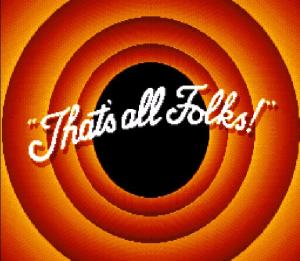Ted: The Geek of Wrath
The virus worked perfectly. The fires in the cities quickly spread to the suburbs, then to the countryside as the remaining few fled in terror. Radio and television stations were off the air, cable networks and satellite communications were dead. Phones didn't even get dial tones anymore.
Harvey was finally alone. His decades of secretive work, clandestine meetings, self-education and sacrifice had finally paid off. He was the last human being on planet Earth.
He contemplated his blissful solitude while looking over his garden. Plants never needed to be impressed, never judged, and never laughed at you behind your back.
There you go. All you see above is all I know about the text and author (Ted). And that it's written on September 27th 2006. Not that it matters. It comes from a site whose members are prompter to write 100 word stories weakly. The occasion for writing this is the following prompt: "In honor of our internet service being down...AGAIN... please write
something today regarding being completely cut off from civilization."
We need to inspect!
Get your goggles!
The preceding passage has the impeccable potency to diabolically mesmerize the reader with its heinous essence and intimidating portrayal of the human revengeful disposition.
Nah, just kidding. I can't stand to read, let alone write in such ludicrous manner. I bet half of my words were used improperly.
Getting serious now:
Blah blah blah. revengeful disposition. Concurrently, the childishly simplistic delineation of the extirpated and perturbed locality is only an adumbration of the slovenly aftermath of such a pernicious venture as executed by the solitary character.
*giggle, giggle* I did it again.
Took me a bunch of thesaurus searches to convert my mediocre writing into such.. such... whatever!
So, what's the main point of this?
Did you like the writing? NO!
Did I like the writing? NO!
Did you think any more of me for being so "classy"? NO!
Should I expect accolades for those sentences? NO!
Would you understand it better if I wrote:
"The text above has the power to devilishly amaze the reader with its evil nature and the scary picture it makes of the human revengeful nature. At the same time, the concise description of the chaotic environment symbolizes the messy consequences of the acts of the main character."
Or would you prefer:
"This text is amazing! It shows how evil a man can be. Also, it shows how much damage a man can do!"
I hope I managed to "show" (not "disclose") the different "degrees" (not "gauge") of "preposterous" (yes, I have to use that word here, it's my new favorite) writing.




